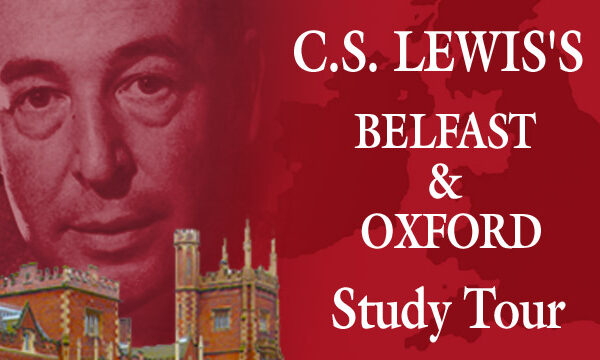Back to series

January 2007
One of the persistent problems that everyone encounters in life is being offended by other people. The “other people” in question include strangers, co-workers, friends, and family. While many of these offenses are relatively minor irritants, others are deep, painful, and have a major impact on us. Regardless of the magnitude, in every case of offense, we are confronted with a critical issue: will we forgive the offender?
C.S. Lewis gives us helpful insight on forgiving others:

As regards my own sins it is a safe bet (though not a certainty) that the excuses are not really so good as I think; as regards other men’s sins against me it is a safe bet (though not a certainty) that the excuses are better than I think. One must therefore begin by attending to everything which may show that the other man was not so much to blame as we thought. But even if he is absolutely fully to blame we still have to forgive him; and even if ninety-nine percent of his apparent guilt can be explained away by really good excuses, the problem of forgiveness begins with the one percent of guilt which is left over. To excuse what can really produce good excuses is not Christian charity; it is only fairness. To be Christian means to forgive the inexcusable, because God has forgiven the inexcusable in you. This is hard. It is perhaps not so hard to forgive a single great injury. But to forgive the incessant provocations of daily life—to keep on forgiving the bossy mother-in-law, the bullying husband, the nagging wife, the selfish daughter, the deceitful son—how can we do it? Only, I think, by remembering where we stand, by meaning our words when we say in our prayers each night “forgive us our trespasses as we forgive those that trespass against us.” We are offered forgiveness on no other terms. To refuse it is to refuse God’s mercy for ourselves. There is no hint of exceptions and God means what He says.1
In comparison to sins like adultery, murder, theft, etc., unforgiveness might seem relatively minor. But Christ does not see it that way. Of all the serious sins he could have possibly mentioned in the Lord ’s Prayer, Jesus focused only on forgiveness (Matthew 6:12, 14-15). He knew that offenses come to each of us regularly, and that we are prone to rationalize and justify our unforgiveness of the offender. He also knew that when we do so, we erect a barrier of sin between us and God which blocks our own forgiveness, as well as our prayers and fellowship with him, and leads to backsliding. Unforgiveness is a spiritual abscess that poisons the soul, the only remedy for which is forgiveness, no matter how difficult.
Forgive us our debts, as we also have forgiven our debtors…. For if you forgive men
when they sin against you, your heavenly Father will also forgive you.
But if you do not forgive men their sins, your Father will not forgive your sins.
MATTHEW 6:12, 14-15 (NIV)
1 C.S. Lewis, The Weight of Glory (New York: Simon & Schuster, 1996), pp. 135-136.
 COPYRIGHT: This publication is published by C.S. Lewis Institute; 8001 Braddock Road, Suite 301; Springfield, VA 22151. Portions of the publication may be reproduced for noncommercial, local church or ministry use without prior permission. Electronic copies of the PDF files may be duplicated and transmitted via e-mail for personal and church use. Articles may not be modified without prior written permission of the Institute. For questions, contact the Institute: 703.914.5602 or email us.
COPYRIGHT: This publication is published by C.S. Lewis Institute; 8001 Braddock Road, Suite 301; Springfield, VA 22151. Portions of the publication may be reproduced for noncommercial, local church or ministry use without prior permission. Electronic copies of the PDF files may be duplicated and transmitted via e-mail for personal and church use. Articles may not be modified without prior written permission of the Institute. For questions, contact the Institute: 703.914.5602 or email us.
-
Recent Podcasts
A Welcome Change in Apologetics
by Randy Newman, Aimee Riegert on April 19, 2024We’re burdened for our friends who don’t know...Read More
-
Questions That Matter Podcast – Samuel James and Digital Liturgies
by Samuel James, Randy Newman on April 19, 2024
-
The Side B Stories – Dr. James Tour’s story
by Jana Harmon, James Tour on April 12, 2024
-
Recent Publications
Isn’t Morality Relative?
by Christopher L. Reese on April 1, 2024It is widely accepted in the Western world...Read More
-
Do Muslims and Christians Worship the Same God?
by Andy Bannister on March 1, 2024
-
Artificial Intelligence and Its Impacts on Humanity
by John Lennox on February 13, 2024
0
All Booked
0.00
All Booked
0.00
All Booked
20599
GLOBAL EVENT: 2024 Study Tour of C.S. Lewis’s Belfast & Oxford
https://www.cslewisinstitute.org/?event=global-event-2023-study-tour-of-c-s-lewis-belfast-oxford-2&event_date=2024-06-22®=1
https://www.paypal.com/cgi-bin/webscr
2024-06-22

Next coming event
Days
Hours
Minutes
Seconds
GLOBAL EVENT: 2024 Study Tour of C.S. Lewis’s Belfast & Oxford
On June 22, 2024 at 12:00 pmat Belfast, Northern Ireland & Oxford, EnglandSpeakers

C.S. Lewis Institute
Author





